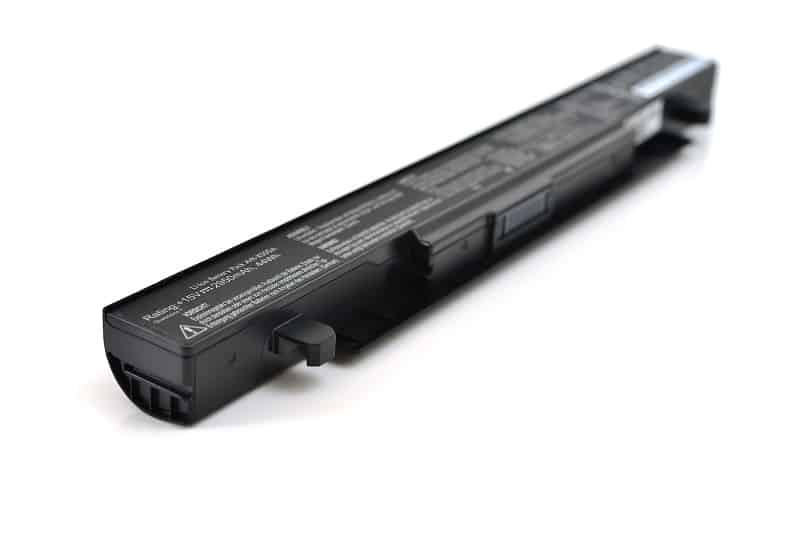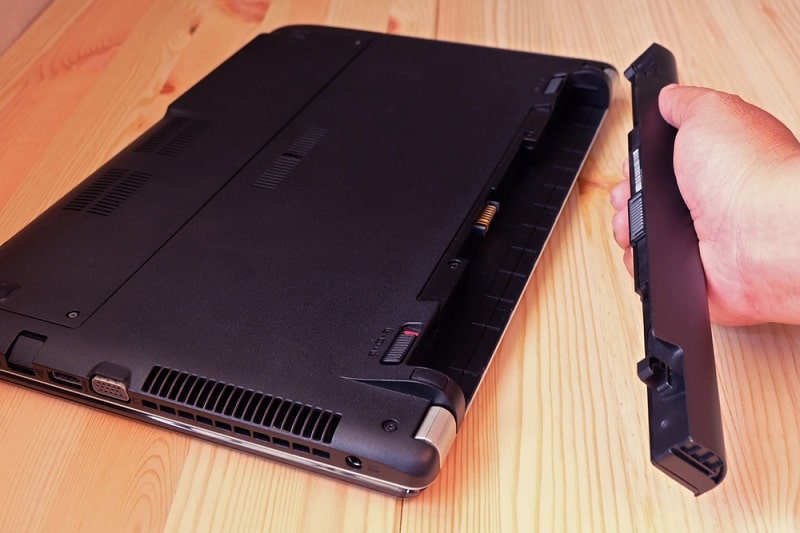As a society, we’re more dependent on batteries than ever.
Our watches, cameras, alarm clocks, remote controls, hearing aids, toothbrushes, toys and torches are battery-operated.
Batteries make smartphones, tablets and laptops fit for mobile use. Even missions to outer space require batteries.
Unfortunately, batteries eventually run out of juice and cannot be recharged. Citizens of the U.K. toss out around 600 million batteries every year.
Far too many end up in general waste bins with rubbish. In 2020, we recycled fewer than half of the portable batteries that were sold. Careless disposal of batteries can wreak havoc on the planet.
With a little education, we can all do better.
Why Properly Disposing Your Laptop Batter Is So Important
Decaying batteries can leak chemicals like nickel, cadmium, lead, zinc and mercury, which harm the environment. Once they’re in a landfill, those toxins pollute the soil and water supply.
That’s dreadful news for both wildlife and humans.
Laptop batteries contain lithium ion, which is far less toxic than many other chemicals contained in batteries.
Still, even lithium-ion batteries (also used in mobiles, tablets, electric toothbrushes and vaping devices) become an environmental hazard when excessive numbers of them are carelessly disposed of.
Simply put, there are two ways to dispose of laptop batteries: the right way and the wrong way.
How NOT to Dispose of a Laptop Battery
Actually, there are a few ways to muck this up. Have a look.
1. Don’t just bin it
Tossing your old battery into the nearest waste or recycle bin might be convenient, but it’s irresponsible on several levels:
Fire hazard
Lithium might not be carcinogenic, but it is a reactive element. In a perfect storm of hazardous conditions and flammable materials, a lithium battery could combust and spark a fire.
Just ask Gateshead Council in northeast England. In 2018, a waste collection crew spotted smoke billowing from the rubbish in the truck. The fire and rescue workers who contained the blaze traced it to a lithium mobile phone battery.
Waste of resources
End-of-life laptop batteries are still useful. Some materials they contain can be salvaged. If they’re tossed into a general-purpose bin, they’re more likely to go to waste in the landfill.
Potential fines
Business owners are under greater scrutiny than ordinary citizens, but all scofflaws could face fines and other legal consequences for improper disposal of batteries.
“Invisible” costs
In the end, carelessness is expensive. Materials that could be recycled must instead be extracted, refined and processed from scratch.
Also, the labour and energy costs associated with logging, quarrying, mining and manufacturing are passed on to consumers.
2. Don’t store it and ignore it
Let’s say you had every intention of doing the right thing. You saved your old battery on a shelf for future recycling but forgot all about it.
Absentmindedness could be dangerous or even deadly. Again, a “dead” lithium-ion battery can ignite flammable materials like paper and cardboard.
3. Don’t ship it without the manufacturer’s green light
Before you ship an old or damaged battery to the manufacturer, get permission and detailed instructions.
Exposure to air can cause a chemical reaction. The battery might overheat and catch fire in transit. Shipping companies frown on that. Even worse, the person responsible for receiving damaged goods could suffer injury.
If you’re told to ship a battery, follow the manufacturer’s instructions to the letter.

How to Dispose of a Laptop Battery Correctly in the UK
Happily, doing the right thing is easier than ever, and it’s almost always free. Here are tips for proper battery disposal.
In urban or suburban areas
If you live in a good-sized community, you have lots of options. Retail outlets and public buildings across the UK have convenient collection points. Here are some examples:
1. Reputable recycling or compliance scheme centres
Find an authorised centre near you online. It’s a simple matter of entering your postcode or town here. You’ll also find valuable information on which items can or cannot be recycled.
Follow instructions at the collection point for sorting batteries; different types of batteries have different destinations.
Reputable centres typically don’t accept key fobs, mobiles, vaping pens or other items that contain batteries. Remove the batteries first.
2. Tesco supermarkets
Since everyone must eat, the Tesco grocery chain is one of the most convenient recycling options. It has battery collection stations in Express, Metro, Superstore and Extra outlets. Tesco collected an impressive 560-plus tonnes of batteries in 2020.
Your gym or favourite petrol station might collect old batteries as well.
3. Battery sellers
Suppliers who sell a certain number of batteries per year must take back all sorts of portable batteries or pay a fine for noncompliance. This means that battery sellers will usually take old laptop batteries.
In rural areas
Recycling is a bit more challenging in rural areas.
First, seal your old battery in a sturdy plastic bag until you find a place for it. The government website or your local council can direct you to recycling options.
You might contact the manufacturer and enquire about its recycle program. Most household-name brands like Dell, Apple and Hewlett-Packard, can give you guidance. Many cover shipping costs.
Just as it takes a lot of batteries to power an ordinary day, it takes a lot of concerned citizens to protect the environment.
More and more people are jumping on the bandwagon. If nothing else, recycling old laptop batteries will help you avoid the scorn of your eco-conscientious neighbours.
Laptop Recycling FAQs
Can I bin a laptop battery?
Binning laptop batteries is harmful to the environment and could be a fire hazard. Look for authorised battery collection points instead.
Does Tesco recycle laptop batteries?
Yes! Tesco does a bang-up job with all sorts of recyclables.
What does it cost to recycle laptop batteries?
Unless you have to ship a battery, and that is rare, proper recycling is free.
How are laptop batteries repurposed?
Salvaged components, like steel and cobalt, are given new life in brand new batteries, electronics, paint manufacturing and the auto industry.
Recycling is an excellent way to maximise battery components that would otherwise go to waste.

Naturaler is a UK website full of tips and recommendations for living a more eco-friendly, chemical-free and natural lifestyle.



